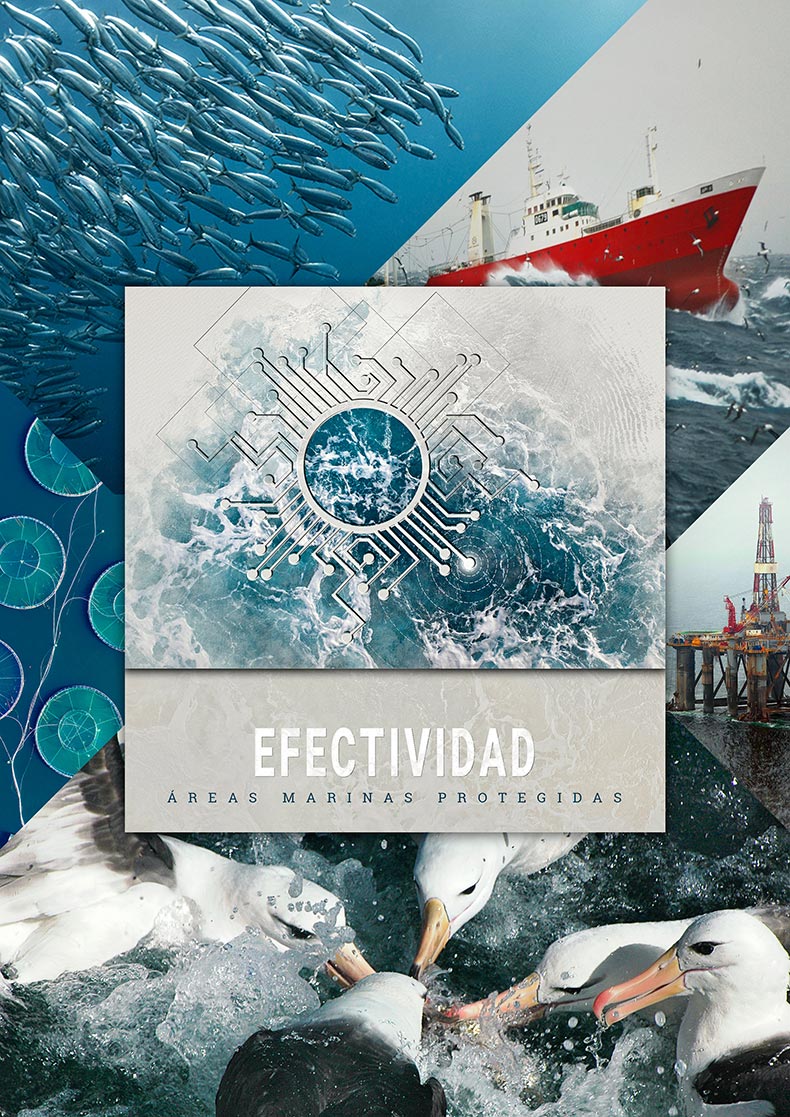Over 200 people took part in the second webinar of the cycle: “Challenges for the Patagonian Sea’s conservation: Chile and Argentina’s outlooks on the planning and implementation of MPA systems”. There were presentations and a round table to discuss the challenges and opportunities in order to achieve effective and representative Marine Protected Areas (MPAs) systems.
The second talk of the cycle was conducted on September 8, with an attendance of over 200 representatives of different institutions devoted to the conservation and sustainable use of marine biodiversity, both governmental, belonging to the civil society and education, as well as private sector representatives. The main focus of this meeting was to explore the way in which MPAs and other management measures contribute to mitigating both the pressure and threats that affect biodiversity and the proper functioning of the ecosystems.

The webinar consisted on brief presentations on the topic, given by members of some of the organizations that comprise the Forum:
- Putting MPAs into practice: from the declaration to the effective conservation. By Rodrigo Guijón, Wildlife Conservation Society (Chile).
- Sustainable marine management efforts to complement MPAs. By Sergio Palma, Environmental Defense Fund (Chile).
- Bringing together fishing and conservation in multiple-use MPAs. By Guillermo Cañete, Fundación Vida Silvestre Argentina, and Leandro Tamini, Aves Argentinas.
Next, we moderated a talk with professionals from the public sector, scientists and experts. The goal was to reflect on the challenges and opportunities, encouraging a regional approach. The panel was comprised by:
- Dr. Miriam Fernández, Head Professor of the Ecology Department, Pontificia Universidad Católica de Chile.
- Dr. Gustavo San Martín, Marine Protected Areas and Climate Change Unit, Undersecretariat for Fisheries, Chile.
- Dr. Gabriela González Trilla, National Director of Environmental Management of Water and Aquatic Ecosystems, Department of Environment and Sustainable Development, Argentina.
- Dr. Claudia Carozza, National Director of Investigations, National Fisheries Research and Development Institute (INIDEP), Argentina.
A regional outlook on the conservation challenges of the Patagonian Sea
“The level of effectiveness and implementation of MPAs is still less than ideal, both in Chile and in Argentina” concluded Santiago Krapovickas at the end of the seminar. He is the coordinator of the project the Forum carries out with the goal of collaborating in the strengthening of Marine Protected Areas systems of the region. However, he also pointed out that both countries have the pertinent information, human resources and institutional frameworks to attain such improvements.
As a result of the feedback on the presentations, the round table and over 50 questions asked by the audience through the webinar’s online platform, Krapovickas summarized a series of opportunities and challenges on the current situation, among which he mentioned that:
- It is imperative to create analysis tools (developing indicators, monitoring and evaluations) for a better implementation of MPAs.
- Both the financing and equipment for an efficient management of fisheries and MPAs are insufficient.
- It is possible to promote a higher cooperation between governmental agencies involved in MPAs, the private sector and the civil society.
- Scientific knowledge must be strengthened for a proper MPA system management and planning.
- Collaborative proposals should be developed and presented in order to strengthen MPA systems through, for example, the integration of protected areas with other management measures, such as fisheries, for both the creation and re-designing of areas.
- We need to train human resources under new paradigms: ecosystemic approaches, good governability, equity, communication and science democratization.
As a conclusion, he remarked that both countries could potentially collaborate with each other. Many jurisdictions coexist in the Patagonian Sea, but the oceanographic and ecological processes connect regions far apart from each other and support life regardless of political borders. In this case, the meeting focused on both Chile and Argentina as case studies in the representation of the vast Patagonian Sea.



